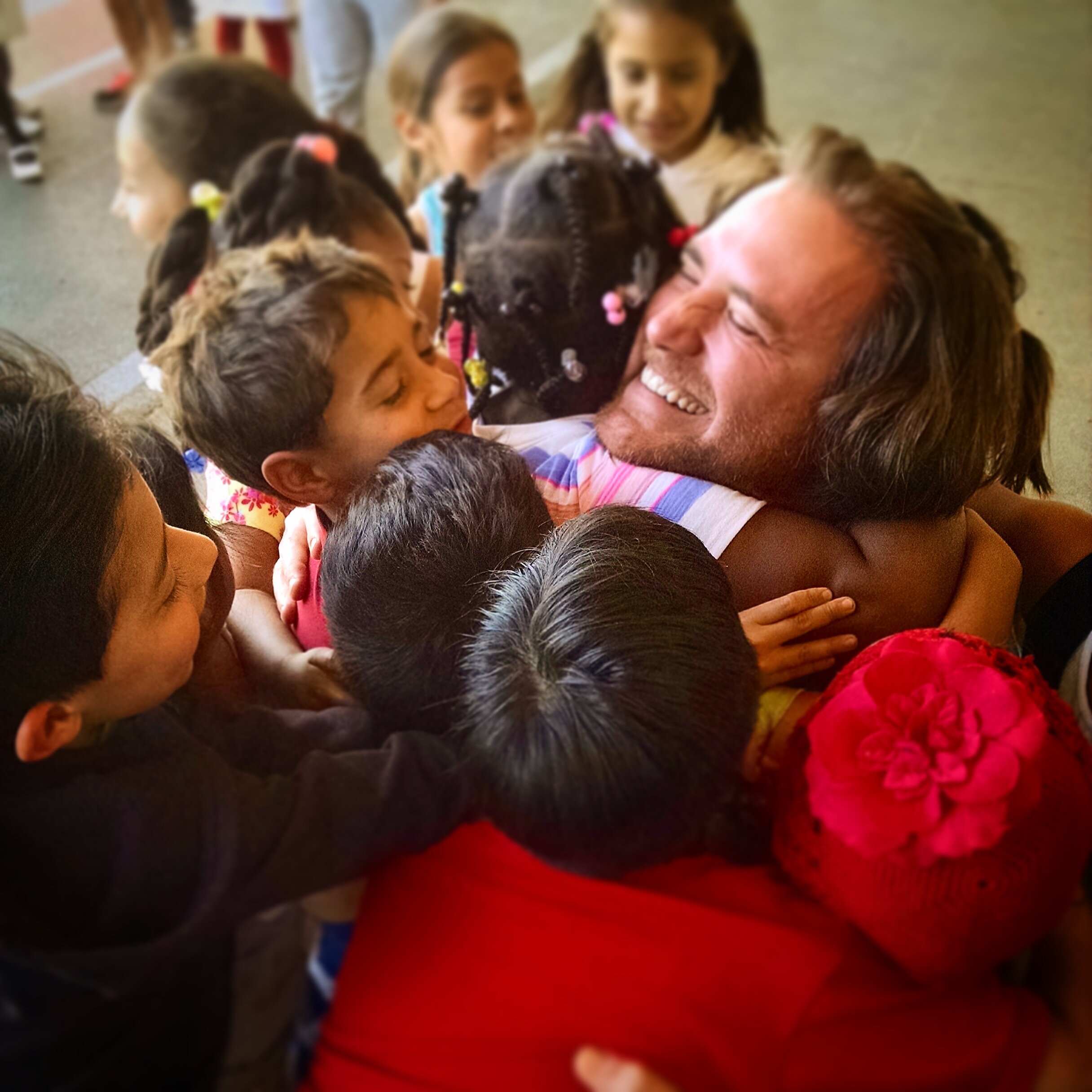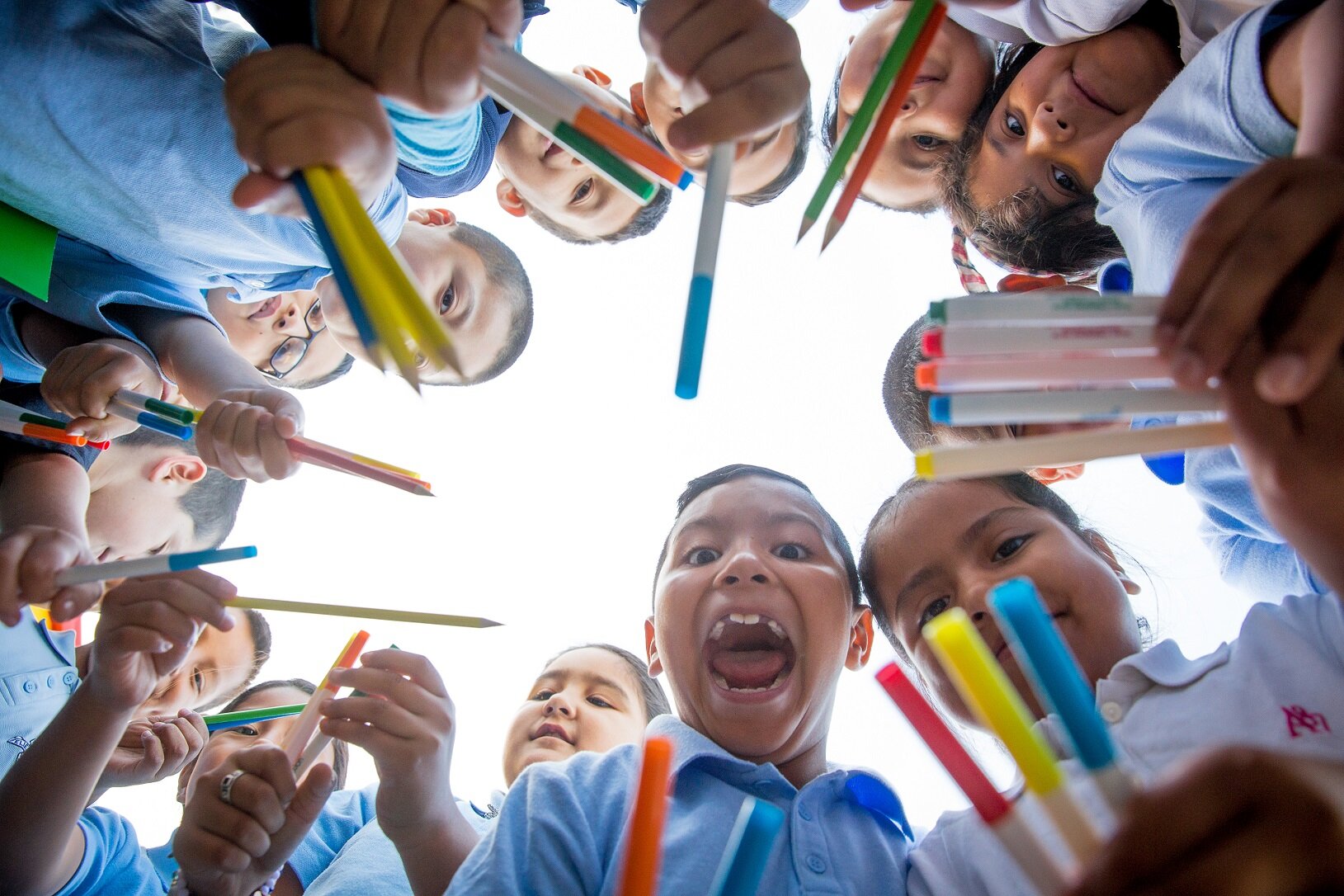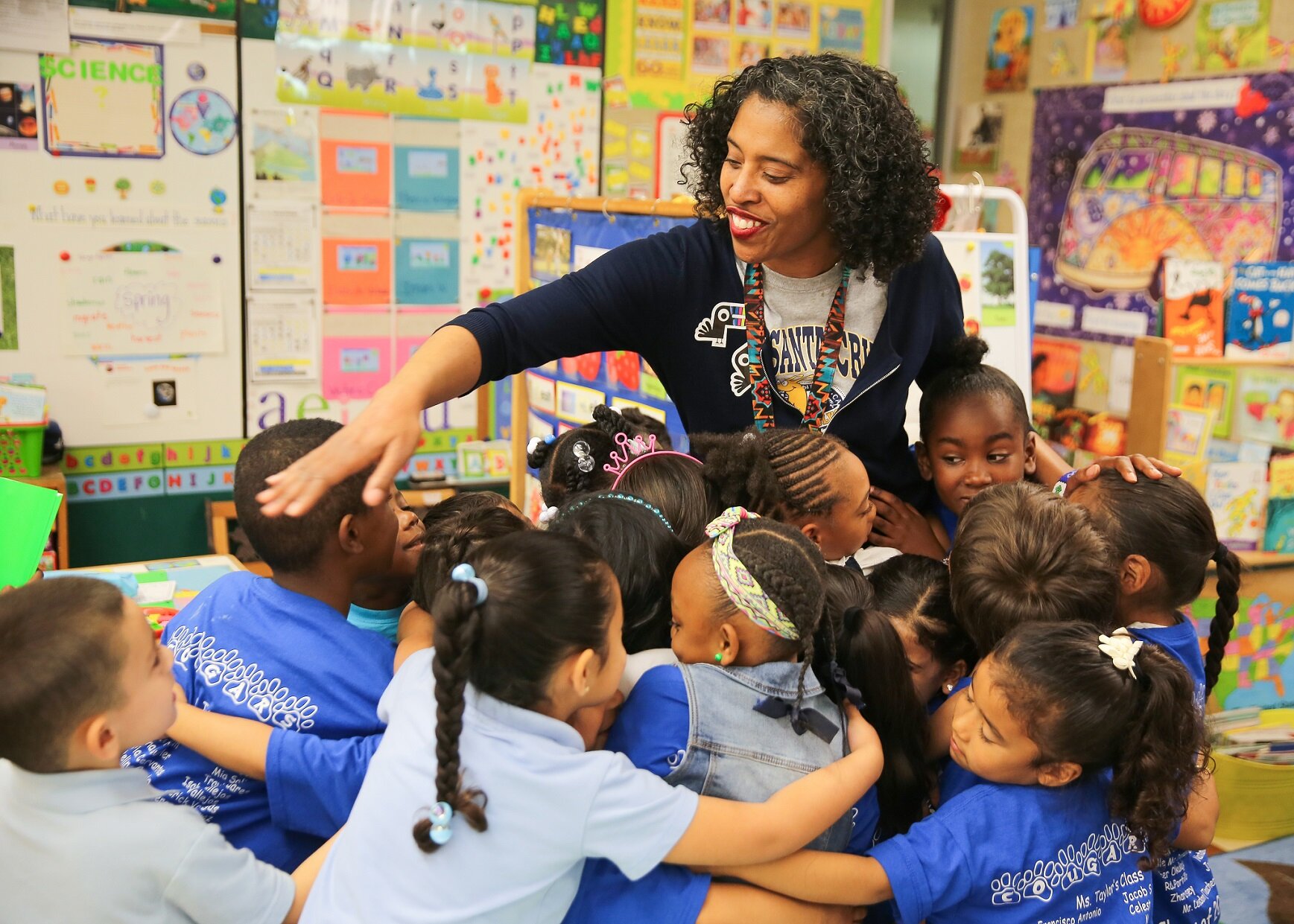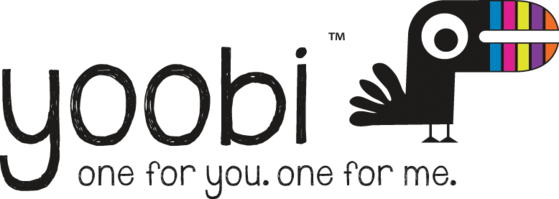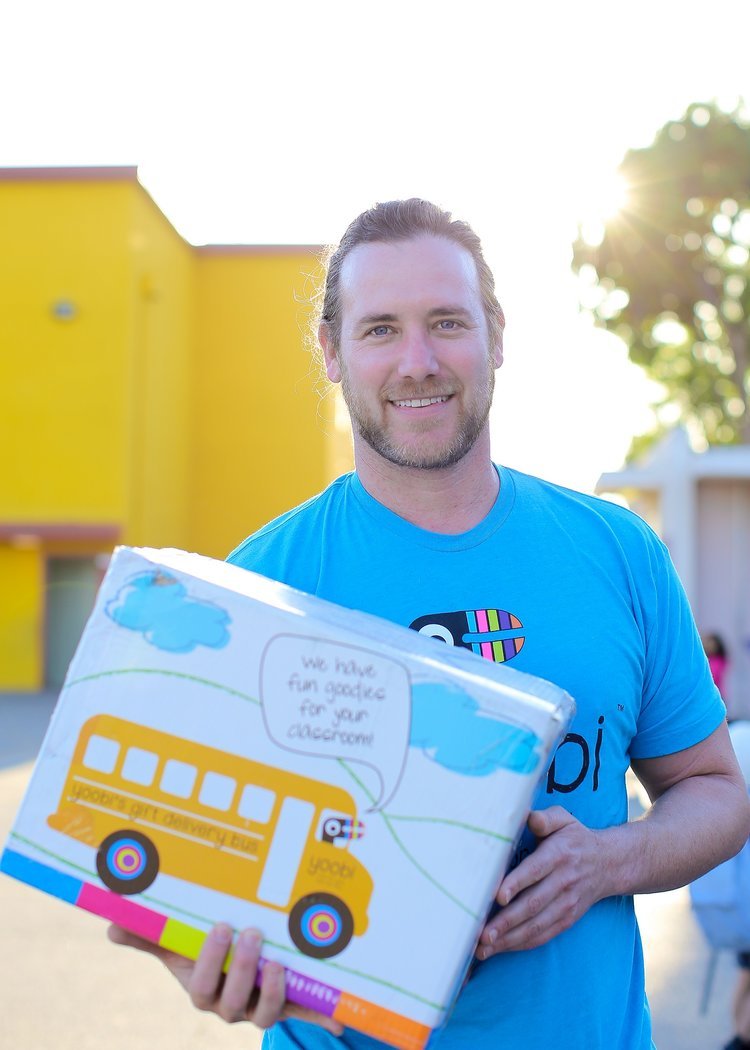
One For You, One For Me: Justin Wolff, Chief Giving Officer at Yoobi
Meet Justin Wolff, Chief Giving Officer and Co-Founder at Yoobi
While practicing law, Justin Wolff spent much of his day isolated with mountains of paperwork. In 2012, he met Ido Leffler, the CEO and co-founder of Yoobi. At that meeting, Ido spoke about a social enterprise concept which had the potential to change classroom reality for teachers and students across the US. Today Justin oversees Yoobi’s buy one, give one program, developing strategic partnerships in order to ensure that donated school supplies make their way to the kids that need them most, right here in the US. We had a chance to hear about Justin’s career change from practicing law to co-founding a social-good focused education startup.
Yoobi’s brand is vibrant and colorful, inspiring both creativity and learning. Is there a story behind Yoobi’s playful name?
Yoobi, pronounced “you-be,” means “one for you, one for me.” For every Yoobi item you purchase, a Yoobi item will be donated to a classroom in need, right here in the U.S. It’s that simple! Yoobi was born in 2014 to make colorful, vibrant tools that spark learning and creativity. Not only did we want to perk up the school supplies aisle, but we wanted to help solve a very big problem.
In addition, Yoobi is meant to be both aspirational and inspirational. The idea was, with the right tools, you can be anything you want to be. Yoobi creative, Yoobi colorful, Yoobi you!
A former finance attorney, what was the journey to Chief Giving Officer of a social good education startup? What drew you to social impact?
While practicing law, I spent much of my day isolated in a fancy office, going through mountains of paperwork. Not exactly my idea of professional fulfillment. I did however, have several opportunities to do pro-bono work in the education space. I advised on state level charter regulations, and oversaw entrance lotteries in grade schools.
It was in those schools in East Los Angeles where I watched 9 out of 10 families being rejected from high performing schools due to lack of space, that I began to see first-hand the kinds of realities that parents faced when it came to their children’s education. The more I learned about the realities in classrooms across the US, the more I began to realize that the status quo was not acceptable – that the burden of supplying students with core learning tools should not have to depend on teachers’ pockets and generosity. Rather, access to essential learning tools should be viewed as a right and not a privilege.
In 2012, I had the good fortune of meeting Ido Leffler, the CEO and co-founder of Yoobi, through a mutual friend. At that meeting, Ido spoke about a social enterprise concept which had the potential to change classroom reality for teachers and students across the US. Although it didn’t have a name yet, the concept alone was a game-changer. Needless to say, I knew by the end of that meeting, my career as an attorney was about to turn into one of a social entrepreneur.
“Access to essential learning tools should be viewed as a right and not a privilege.”
It’s surprising and disheartening to learn how many children in the U.S. don’t have access to basic school supplies. As Chief Giving Officer at Yoobi, how do you determine that donated school supplies make their way to the kids that need them most?
It is disheartening, but the greater the challenge, the greater the opportunity to do something about it. Today, teachers on average spend almost $485 per class per year on basic school supplies for their kids. Additionally, for the first time in at least 50 years, a majority of students in US public schools come from low-income families.
“We believe that creating equal access to school supplies at an early stage has the greatest multiplying effect on the chances of a child succeeding down the road.”
Yoobi addresses this directly by ensuring that our donations (or to use our preferred term, our “gives”) go to elementary schools where at least 70% of the students qualify for free or subsidized cost lunch under the National School Lunch Program (the most accurate indicator of real poverty amongst student populations). We believe that creating equal access to school supplies at an early stage has the greatest multiplying effect on the chances of a child succeeding down the road.
We accomplish this through our national give partner, the Kids In Need Foundation (KINF). KINF is a non-profit organization that has built an affiliate network of nearly 40 teacher resource centers across the US, which have relationships with the highest need schools and districts in their respective geographies. Each “Classroom Pack” that we provide to the KINF for distribution through the resources centers contain essential school supplies for 30 students. I’m very proud that even though our company is less than three years old, we’ve already impacted nearly 2.5 million kids.
Some of your time is spent in the classroom, observing firsthand the challenges and successes teachers and kids face every day. How has this informed Yoobi’s giving strategy?
Spending time inside the classrooms, and communicating directly with teachers is critical to our giving mission. Before we ever sold an item at Yoobi, I spent time working as a teacher’s aid and doing after-school programs with kids in school, so that I could learn for myself what reality was like in the classroom – both for teachers and students alike. I leveraged those lessons to ensure that what we give, how we give, and to whom we give, are at the top of mind at any given time. Additionally, we do our best to reconnect with teachers we’ve served, in order to get their feedback on the products and experience, so that we’re constantly improving how we give and what we give, ensuring that it’s always relevant and impactful.
Many social impact organizations work with international beneficiaries. Are there unique challenges to working within the U.S.?
I always say, it’s easy to give… it’s hard to give well. Sure, we encounter logistical challenges and policy and regulatory complexities that vary from state to state, district to district or even school to school.
We are deeply committed to the idea that purchases made in the U.S. support students in need in the U.S. There are currently over 31 million kids in the U.S. alone that qualify for free or reduced lunch. For many of these kids, their families are forced to make difficult choices between school supplies and clothes or food. So we believe giving locally is the right way to go. Plus, there’s just something amazing about knowing that your purchase will potentially support a kid that you call neighbor.
What’s next for Yoobi?
Lots of big things are happening at Yoobi! Since our 2014 launch, we’ve now provided nearly 2.5 million kids with free sets of school supplies. We now have our sights set on reaching 5 million kids and doing that year over year. One of the most exciting new programs at Yoobi is our B2B offering. We’re now engaging with companies, schools and organizations to purchase their supplies through Yoobi. It’s a simple way of making a difference in classrooms across the US by purchasing the same things they’re already purchasing. Additionally, we now offer co-branding options for most of our products. Finally, we have a turn-key backpack program which supports backpack drives. We think that these new sales channels will amplify our ability to give each year. If you’d like to learn more about Yoobi’s business offerings, check out www.yoobiforbusiness.com.
